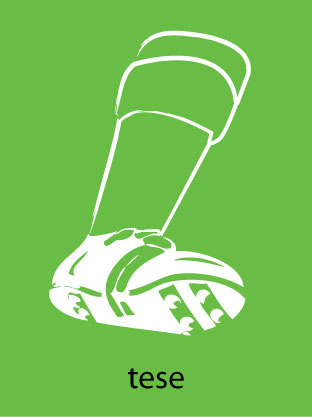A hipótese central é que por detrás dos problemas econômicos e de gestão do esporte, existem questões essencialmente políticas que condicionam as ações dos diversos atores envolvidos e possuem uma relação direta com a “gramática e os mecanismos de poder” tradicionalmente aplicados no esporte nacional. Desta forma, reflete-se uma maneira de enxergar e operar o esporte que aparentemente não parece se sustentar economicamente por muito tempo e é extremamente prejudicial à manutenção em bom nível da atividade esportiva. Em larga medida e parte do mesmo arranjo sistêmico, a aliança entre o capital, por meio dos diversos patrocinadores e principalmente pelas plataformas de distribuição e transmissão dos conteúdos esportivos com a elite política do esporte no Brasil – EPEB, vulgo Cartolagem, constituem o comando predatório das atividades esportivas profissionais no País, que se sustenta no atraso e na falência generalizada. Este arranjo é essencialmente forjado na prática clientelista apoiada em um mecanismo cartorial cujo principal ator vem sendo a EPEB e seus membros, de modo geral e em específico no caso do futebol analisado aqui. Esta elite política se perpetua em grande medida a partir da falência econômica e do atraso gerencial dos Clubes Brasileiros de Futebol- (CBdeF). Trata-se de presidentes e diretores de clubes, presidentes e diretores das federações estaduais, corpo dirigente da CBF e em casos recorrentes, membros da política convencional que transitam nos dois campos políticos, e empresários do setor. Para investigação da matéria utiliza-se de uma historicização do objeto e contextualização contemporânea, sem ignorar o passado relevante e que condiciona em alguma medida a trajetória até aqui, sendo o período mais relevante o dos anos 1990 até o presente. Considera-se fundamental o método neo institucionalista, o cenário atual do futebol nacional e seus principais atores, a estrutura de poder dirigente, os mecanismos que permitem a operação e perpetuação de tal poder, tal qual ele se configura, principalmente pela gramática clientelista contemporânea em rede, através de um evidente “estado cartorial do esporte”, apoiado essencialmente no arranjo federativo do desporto nacional, precisamente, as federações estaduais de futebol, configuração única quando comparado a qualquer outro país.

Tese
A rede do gol
cartorialismo e clientelismo na Estrutura Política Esportiva Brasileira (EPEB)
2018
Instituto de Ciências Humanas, Universidade Federal de Juiz de Fora
Leonardo Silva Andrada, Lenácio José Godinho Delgado, Wallace Faustino da Rocha Rodrigues, Orecione Aparecida Vieira Pereira
Tese
Doutorado em Ciências Sociais
138
Arquivos
Resumo
Abstract
The central hypothesis is that behind the economical and management problems in sports lie political questions that define the actions of the involved agents. These questions have a direct relation with the “power grammar and mechanisms” traditionally existent in all national sports. Therefore, there is a way of understanding and managing sportive activities that can’t sustain itself economically and is harmful to a good management level. It is part of the same systemic arrangement the alliance between capital, through the sponsors and mainly the sportive broadcasting and distribution platforms, with the political elite of sports in Brazil – PESB, also known as “Cartolagem”. This constitutes the predatory command of professional sportive activities in the country, sustained by general failure and backwardness. This arrangement is based on the clientelist practice sustained by a notarial mechanism, whose main agents are the members of the PESB. These political elite maintains itself through the economic and management bankruptcy of Brazilian Soccer Teams (BST) and are part of it the teams president and directors, state federations presidents and directors, the directors of CBF and, recurrently, traditional politicians and businessmen. To investigate the subject it was used the historic and current context of the assessed objects, with the most important period dating from the 1990s until nowadays. The neo institutionalist method, soccer current scenario, its main agents and their power structure were taken into account for the purpose of understanding the operation and maintenance of this arrangement. It is also pointed that it is conducted through the current clientelist grammar network, combined with a “notarial situation of sport”, which is supported by the federative arrangement of national sports, specifically the state federations, creating a unique configuration when compared to other countries.
Sumário
INTRODUÇÃO, 11
CAPÍTULO 1 – O FUTBRAS COMO OBJETO DE PESQUISA, 15
1.1 – QUESTÕES HISTÓRICAS, SOCIAIS E POLÍTICAS: UMA SÍNTESE DA HISTÓRIA INSTITUCIONAL DO FUTBRAS, 20
CAPÍTULO 2 – O QUADRO TEÓRICO REFERENCIAL, 32
2.1 – INSTITUCIONALISMOS, 35
2.2 – HISTÓRIA, CAMPO, HOBSBAWM E BOURDIEU, 40
2.3 – AS INTITUIÇÕES E ALGUNS ATORES MAIS DESTACADOS, 46
2.4 – FEDERAÇÃO INTERNACIONAL DE FUTEBOL ASSOCIADO (FIFA), 49
2.5 – CONFEDERAÇÃO BRASILEIRA DE FUTEBOL (CBF), 55
2.6 – AS REDES DE CLIENTELA E O CARTORIALISMO COMO INSTRUMENTO DE
PODER NA EPEB, 67
2.6.1 – CLIENTELISMOS, 70
2.6.2 – A REDE DO GOL, 78
2.6.3 – A CARTOLAGEM E O PREÇO DO CARIMBO, 81
CAPÍTULO 3 – CONTINGÊNCIA ECONÔMICA E GESTÃO ESPORTIVA: A CONFIGURAÇÃO DO FUTBRAS PÓS CMF2014, 82
3.1 – O FUTEBOL COMO SEGMENTO DE IMPACTO ECONÔMICO, 82
3.2 – GESTÃO ESPORTIVA NO FUTBRAS E A CENTRALIDADE DA EPEB,117
3.2.1 – A REGULAÇÃO INCIPIENTE,117
3.2.2 – A FRAGILIDADE DA GESTÃO ESPORTIVA,118
3.2.3 – OS COLÉGIOS,120
3.2.4 – O INTERCÂMBIO EPEB – POLÍTICA CONVENCIONAL,123
CONCLUSÃO, 126
REFERÊNCIAS BIBLIOGRÁFICAS, 129
Referência
PONTE, William Rezende Alves. A rede do gol: cartorialismo e clientelismo na Estrutura Política Esportiva Brasileira (EPEB). 2018. 138 f. Tese (Doutorado em Ciências Sociais) - Instituto de Ciências Humanas, Universidade Federal de Juiz de Fora, Juiz de Fora, 2018.Leituras recomendadas
-

O rádio, o esporte e a nação
David Leonardo Quitián Roldán -

Fintar Fronteiras
Carlos Nolasco -

“O futebol não foi profissional comigo, mas eu fui com ele”
Fernanda Ribeiro Haag -

A voz do narrador de futebol na construção das seleções nacionais como mercadorias não corpóreas no Brasil e na Argentina
Martín Ernesto Russo

